In the rapidly expanding world of renewable energy, the role of a solar equipment installer has become increasingly pivotal. As someone passionate about contributing to a sustainable future, becoming a solar equipment installer not only offers you a chance to play a direct part in the green energy transition but also opens up a pathway to a rewarding career. This article aims to provide you with a comprehensive overview of what it takes to embark on a career as a solar equipment installer, including necessary qualifications, skills, and tips for succeeding in this growing field.
Understanding the Role of a Solar Equipment Installer
A solar equipment installer, often referred to as a solar photovoltaic (PV) installer, is responsible for the installation and maintenance of solar panel systems on residential and commercial properties. This role requires a blend of technical knowledge, physical dexterity, and customer service skills, as installers must not only ensure that solar panels are installed efficiently and safely but also communicate effectively with clients about how these systems work.
Key Responsibilities
- Assessing installation sites to determine the most efficient placement and configuration of solar panels.
- Installing, maintaining, and repairing solar PV systems, including the panels and the supporting structures.
- Connecting solar panels to the electrical grid and ensuring that the installation meets local, state, and national electrical codes.
- Providing clients with information on system maintenance, monitoring, and potential energy savings.
Qualifications and Skills Required
Becoming a proficient solar equipment installer requires a mix of formal education, technical training, and on-the-job experience.
Educational Background
A high school diploma or equivalent is typically the minimum requirement. However, courses in mathematics, physics, and vocational training in electrical or mechanical installation can provide a solid foundation for aspiring installers.
Technical Training and Certification
Technical training programs, which can be found at community colleges and trade schools, offer comprehensive courses on solar technology, system installation, safety practices, and the electrical basics relevant to solar PV systems. Certification, such as that offered by the North American Board of Certified Energy Practitioners (NABCEP), is highly regarded in the industry and can significantly enhance job prospects and credibility.
Essential Skills
- Proficiency in using tools and equipment necessary for solar panel installation.
- Understanding of electrical wiring and safety protocols.
- Ability to read and interpret technical drawings and schematics.
- Strong problem-solving skills and attention to detail.
- Effective communication and customer service abilities.
Practical Tips for Aspiring Solar Equipment Installers
Embarking on a career as a solar equipment installer is an exciting journey. Here are some practical tips to help you succeed:
- Pursue Relevant Education and Training: Focus on gaining a solid understanding of solar technology and electrical systems through targeted education and training programs.
- Obtain Certification: While not always mandatory, obtaining professional certification can significantly enhance your employability and credibility in the field.
- Gain Hands-On Experience: Look for internship or apprenticeship opportunities that allow you to work alongside experienced installers. This on-the-job training is invaluable.
- Stay Updated on Industry Trends: The solar industry is constantly evolving. Stay informed about the latest technologies, tools, and best practices by attending workshops, seminars, and continuing education courses.
- Build Your Network: Networking with professionals in the renewable energy sector can open up job opportunities and provide you with mentorship and advice.
FAQs for Aspiring Solar Equipment Installers
To round off your understanding, let’s address some frequently asked questions about becoming a solar equipment installer.
Q: How long does it take to become a solar equipment installer?
A: The time frame can vary depending on the route you take. Completing a technical training program may take several months to a year, while gaining sufficient hands-on experience to be fully competent may take additional years.
Q: Is working as a solar equipment installer physically demanding?
A: Yes, the job can be physically demanding, as it often involves working at heights, lifting heavy equipment, and being exposed to the elements.
Q: What is the job outlook for solar equipment installers?
A: The job outlook is very positive. With the growing emphasis on renewable energy sources, demand for skilled solar equipment installers is expected to continue to rise significantly.
Conclusion: Bright Prospects in Solar Installation
The journey to becoming a solar equipment installer is marked by continuous learning and growth. In a world increasingly leaning towards sustainable energy solutions, the demand for skilled professionals in solar installation is set to soar. By acquiring the necessary qualifications, honing your technical skills, and staying abreast of industry developments, you can forge a successful career in this rewarding field. Remember, every solar panel you install not only contributes to reducing the carbon footprint but also represents a step towards a cleaner, greener future. Embrace the challenge, and you could find yourself at the forefront of the renewable energy revolution.


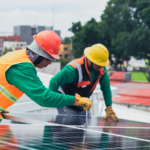
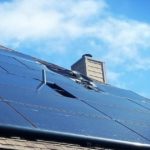

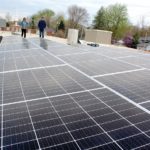
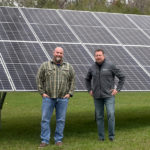
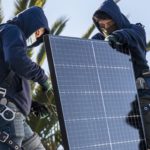
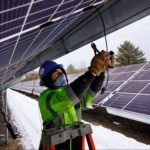
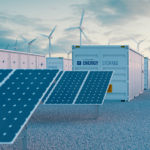
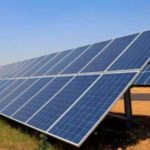


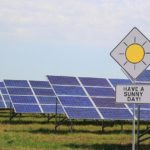
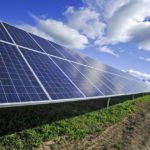

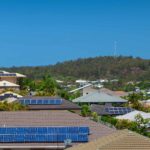
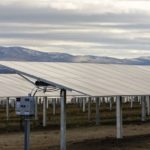




Recent Comments